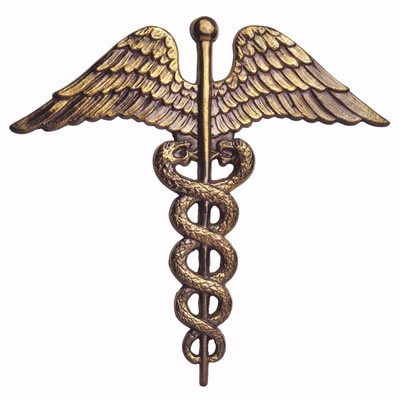|
This e-newsletter is sponsored by
|
|
Contact Us | |
American Society of
Bariatric Physicians
2821 S. Parker Road, Ste. 625
Aurora, CO 80014
office 303.770.2526 | asbp.org
Staff
Laurie Traetow, CAE
Executive Director
laurie@asbp.org
Colin Bennett
Director of Events &
Corporate Sponsorships
colin@asbp.org
Carly Crosby
Administrative Intern
carly@asbp.org
Heidi Gordon
Director of Marketing &
Communications
heidi@asbp.org
|
|
|
|
Obesity Medicine e-Weekly |
|
News
Consider submitting a case study for the new ASBP Obesity Medicine e-Weekly column
The Society is pleased to announce a call for case studies from members interested in being featured in an upcoming issue of this e-newsletter! Each month an ASBP member will provide details of an actual patient case and how treatment was administered. Then, this case study will be posted as a new discussion thread on the ASBP Group on LinkedIn, where members are encouraged to join the discussion (and the case study author is required to particpate and respond to questions). Please download the ASBP Guidelines for Case Studies, then submit your proposal to ASBP Health Director Stacy Schmidt, Ph.D., at stacy@asbp.org. Proposals are accepted on an ongoing basis.
New Obesity Action Coalition campaign encourages patients to measure and discuss weight with their health care providers: Free toolkit available
 In order to promote a healthier public and improve the quality of life for millions of Americans affected by excess weight or obesity, the Obesity Action Coalition (OAC) has launched a national weight and health awareness campaign, Your Weight Matters. The campaign issues a challenge to all Americans to measure their weight and talk to their health care providers about it. Anyone interested in taking the Your Weight Matters campaign challenge can do so online at www.YourWeightMatters.org. Campaign participants are provided with a FREE resource toolkit to help them prepare for the conversation of weight with their healthcare providers. The toolkit also includes resources on topics such as nutrition, physical activity and weight-loss options. In addition, campaign participants can opt-in to receive Your Weight Matters Weekly, a weekly e-newsletter providing nutrition and fitness tips along with news about the campaign and much more. If you have any questions about the Your Weight Matters campaign, please contact OAC at 800.717.3117 or info@yourweightmatters.org. Remember, your membership in the Society provides you with membership in OAC! In order to promote a healthier public and improve the quality of life for millions of Americans affected by excess weight or obesity, the Obesity Action Coalition (OAC) has launched a national weight and health awareness campaign, Your Weight Matters. The campaign issues a challenge to all Americans to measure their weight and talk to their health care providers about it. Anyone interested in taking the Your Weight Matters campaign challenge can do so online at www.YourWeightMatters.org. Campaign participants are provided with a FREE resource toolkit to help them prepare for the conversation of weight with their healthcare providers. The toolkit also includes resources on topics such as nutrition, physical activity and weight-loss options. In addition, campaign participants can opt-in to receive Your Weight Matters Weekly, a weekly e-newsletter providing nutrition and fitness tips along with news about the campaign and much more. If you have any questions about the Your Weight Matters campaign, please contact OAC at 800.717.3117 or info@yourweightmatters.org. Remember, your membership in the Society provides you with membership in OAC!
|
Obesity Updates: Click titles to view articles
Gut microbiota metabolism of L-carnitine from red meat may promote atherosclerosis 
Koeth, R.A., et al. Nature Medicine, 2013. The link between red meat consumption and heart disease has historically been associated with the higher levels of saturated fat in red meat; however, a recent study suggests that the real culprit may be trimethylamine-N-oxide (TMAO)--a byproduct of the metabolism of dietary L-carnitine, abundant in red meat. TMAO is produced by intestinal microbiota and accelerates atherosclerosis in mice. Humans who eat red meat produce higher amounts of TMAO than vegetarians. L-carnitine is a common dietary supplement and plays a role in transporting fatty acids into mitochondria for ultimate oxidation. Intake of this supplement and increased red meat intake may increase risk for atherosclerosis through gut bacteria-produced TMAO.
Moghetti, P., et al. JCEM 2013.
Insulin resistance is common in Polycystic Ovary Syndrome (PCOS); however, the prevalence of insulin resistance may differ depending on which diagnostic feature the PCOS patient has. Insulin resistance was measured in women who presented with hyperandrogenism, chronic oligoanovulation and polycystic ovaries. Seventy-one percent of subjects were insulin-resistant, but the frequency of insulin resistance differed among the three subgroups, with hyperandrogenism having the highest frequency of insulin resistance. Establishing which women should have metabolic screening for insulin resistance based on their diagnostic features may allow physicians to better tailor therapies for women with PCOS.
Stults-Kolehmainen MA, et al. Nutrition & Diabetes, 2013. Body fat distribution may be a more important indicator of an individual's health than one's total fat mass. Specifically, excess fat in the central region of the body is more strongly associated with negative health outcomes than total body fatness. Ethnic and racial background is a key determinant of body fat patterning and may be predictive of obesity status. A cohort of 852 men (age 18 to 30 years) were assessed for body composition in five body regions via dual-emission X-ray absorptiometry (DXA). Participants were African-American (AA), Asian (AS), Hispanic (HI) and non-Hispanic White (NHW) men. DXA results showed that HI had a greater fat percentage than NHW for every region and a greater fat percentage than AA for every region except the arm. In addition, in the android and trunk regions, HI had a greater fat percentage than AS, and AS had a higher fat percentage than AA. Finally, the android fat percentage for AS was higher than for NHW. AA and NHW were not significantly different in fat percentage for any region. Overall, the results suggest a pattern of ethnic/race-related influence on regional fat deposition. Whether this difference in distribution translates to differential health risks remains to be determined. |
|
Ask the Obesity Expert
Rasbperry Ketone
The Society is pleased to provide yet another member resource through this second installment of the new column, Ask the Obesity Expert! Once per month, an experienced obesity medicine physician will respond to a question submitted by the membership. Then, the ASBP staff will post that question and response as a new discussion thread on the ASBP Group on LinkedIn, where we encourage you to weigh in on the discussion! Do you have an idea for a future topic? Please submit your question via e-mail to Director of Marketing & Communications Heidi Gordon at heidi@asbp.org. Need help joining the LinkedIn or the ASBP Group? Click here to download a PDF of instructions.
Question: What is raspberry ketone, and should I incorporate it into my practice?
Answer: Raspberry ketone [4-(4-hydroxyphenyl) butan-2-one] or rheosmin, is a compound extracted from raspberries, blackberries, peaches, apples, rhubarb, grapes and the bark of some trees. It is similar in molecular structure to capsaicin (found in chili peppers) and synephrine (found in bitter orange trees)- two compounds that are thought to exert anti-obesity actions and alter lipid metabolism. It is hypothesized that the method in which raspberry ketone helps with weight loss is related to an increase in norepinephrine-induced lipolysis. The data supporting this claim is extremely sparse. After searching various online medical and scientific databases, I found less than a handful of studies specifically related to raspberry ketone and weight loss, two of which are rodent studies. One study suggests that when rats were fed a high-fat diet with raspberry ketone, there was prevention of fat storage and increased lipolysis in the liver compared to the control group on a high-fat diet 1. An in vitro study had a similar finding in that when adipocytes were incubated with raspberry ketone, there was an increase in lipolysis and fat oxidation, suggesting that this compound may aid in limiting fat accumulation2. It is important to note, however, that no studies have been conducted in humans to elucidate the effect of raspberry ketone on in vivo lipolysis and fat oxidation. Raspberry ketone has been used in cosmetics and as a food additive for decades, and in its "natural" state, it is quite expensive. Nowadays, raspberry ketone is primarily synthesized in a lab and is a very inexpensive additive for the aforementioned purposes. The safety data, though quite limited, do not reveal any significant concerns but there are no large studies regarding this. With a combination of extremely limited efficacy and safety data, substantial health benefit claims, a population desperate for results and large profit margins, it is no wonder that raspberry ketone is one of the top-selling nutrition supplements on the market right now. At this point, though, the use of raspberry ketone can be based on only anecdotal experience and insufficient scientific data. Hence, I currently cannot recommend the use of this supplement.
References
1. Wang, L., et al. J Med Food. 2012. http://www.ncbi.nlm.nih.gov/pubmed/22551412.
2. Park, K.S. Planta Med. 2010. http://www.ncbi.nlm.nih.gov/pubmed/20425690.
Answered by Jennifer Seger, M.D. (San Antonio, Texas)
 | |
Dr. Seger |
All advice and information in this column are given in good faith and based on sources believed to be reliable and accurate at the time of release. These statements reflect the views of the individual physician who is responding and do not necessarily reflect the views of the Society, nor indicate a commitment to a particular course of action.
|
|
Education
Are you ready for San Diego?
(Friday, April 26 - Sunday, April 28) - 17 CME hours
Click here to learn more about the conference, including details about the speakers, sessions and registration.
Members Can Earn Referral Rewards!
Do you know someone who is preparing for this year's ABOM exam? Tell a colleague about the Obesity Medicine Certification Review Course (April 24-25), and for each registration we receive with your name as the referral, you will receive $100 (limit of five per person)! |
|
|
|
|